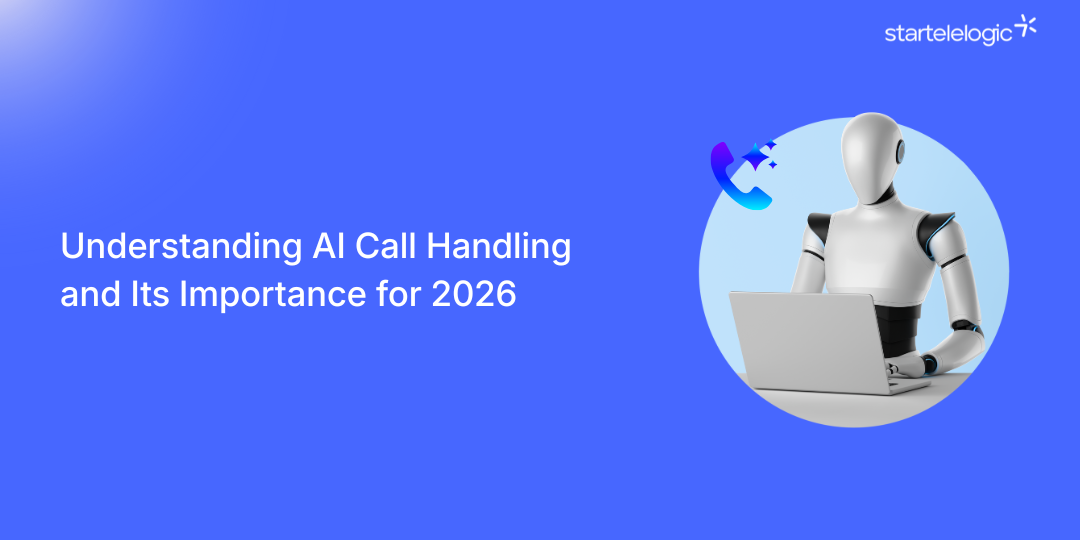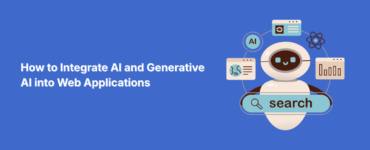The rapid evolution of customer service technology has created a strong demand for AI call handling solutions, especially as organizations face steady increases in call volumes and higher expectations for fast, accurate support. Industry analyses consistently highlight measurable improvements in response quality, caller satisfaction, and operational efficiency when AI systems are integrated into call centers. These trends reveal a clear shift toward automation-driven communication models that prioritize scalable, intelligent interactions. As 2026 approaches, AI call handling is being recognized not just as a technological upgrade but as a critical component of modern customer experience strategies.
What Is AI Call Handling?
AI call handling refers to the integration of artificial intelligence systems into customer communication channels to manage, direct, or resolve phone-based interactions with minimal human involvement. These solutions use natural language processing, voice recognition, and machine learning to understand caller intent and deliver accurate responses in real time. Unlike traditional methods that rely heavily on scripted menus or manual routing, AI-driven systems can interpret conversations naturally, personalize the interaction based on customer history, and adjust the flow depending on the complexity of the issue. This makes AI call handling solutions far more flexible and efficient than older frameworks, ultimately improving both service quality and operational performance.
Why AI Call Handling Solutions Are Essential for 2026
AI call handling solutions are becoming essential for 2026 because organizations are facing unprecedented pressure to respond quickly, scale efficiently, and maintain high-quality customer experiences regardless of call volume. Customers increasingly prefer immediate answers, and businesses that depend solely on human resources struggle to keep up during peak hours or periods of increased demand. AI bridges this gap by automating routine interactions, supporting live agents during complex calls, and providing consistent service at any time of day. Companies that adopt AI call handling solutions benefit from faster resolutions, lower costs, better customer satisfaction, and a more stable communication environment capable of supporting long-term growth.
Managing Higher Call Volumes Efficiently
One of the most significant advantages of AI call handling solutions is their ability to manage rising call volumes without requiring an equivalent increase in staffing. Many businesses experience seasonal spikes, emergency surges, or rapid growth phases where call traffic overwhelms human teams. With AI in place, organizations can maintain service continuity because automated systems can handle large numbers of repetitive or straightforward calls simultaneously. This reduces caller wait times, decreases stress on human agents, and ensures customers receive timely responses, even during peak operational periods.
Providing 24/7 Customer Support
Continuous availability is another major benefit of AI call handling solutions. Unlike traditional call centers that operate within specific time windows or rely on shift-based staffing, AI systems remain active at all hours. This ensures customers can access help whenever they need it, regardless of their time zone or schedule. Businesses that serve global audiences or receive high levels of after-hours traffic gain a significant advantage through uninterrupted support. AI’s consistent availability contributes to stronger customer loyalty, fewer missed opportunities, and a more dependable overall service experience.
Reducing Operational Costs and Increasing Efficiency
AI call handling solutions also play a crucial role in reducing operational costs by automating tasks that would otherwise require extensive manpower. These systems streamline call routing, answer frequently asked questions, collect customer information, and guide callers through troubleshooting steps, all without human intervention. By reducing the time agents spend on routine interactions, companies can focus their human workforce on more specialized or high-value tasks. This improves operational efficiency, lowers the average cost per call, and enhances the overall sustainability of customer service operations.
Enhancing Customer Experience Through Personalization
Personalization has become a key component of modern customer service, and AI call handling solutions excel in this area by quickly analyzing caller histories, previous interactions, and behavioral data. With this information, AI can provide context-aware conversations that feel more natural and tailored to individual needs. Personalized support not only speeds up issue resolution but also improves customer satisfaction by making callers feel understood and valued. This shift toward intelligent personalization helps companies build stronger relationships and deliver service experiences that stand out in competitive markets.
Supporting Human Agents Instead of Replacing Them
Although automation is central to AI call handling solutions, these systems are not designed to replace human agents. Instead, they function as intelligent assistants that enhance agent performance. AI can provide real-time suggestions, retrieve relevant information during conversations, and automatically generate call summaries once the interaction ends. This reduces administrative burden and allows agents to focus on more complex or emotionally sensitive calls that require human empathy and judgment. As a result, teams become more efficient, morale improves, and customers receive higher-quality service overall.
Ensuring Consistency and Accuracy in Customer Support
Consistency is a major advantage of AI call handling solutions because automated systems deliver the same level of accuracy and professionalism across all interactions. Human performance can vary due to stress, fatigue, or individual differences, but AI maintains steady communication patterns and adheres strictly to organizational guidelines. This reduces errors, enhances compliance, and ensures that customers receive uniform answers regardless of who—or what—manages the call. For industries with strict quality standards, this level of consistency is especially valuable.
Leveraging AI for Deep Customer Insights
AI call handling solutions offer powerful analytical capabilities that traditional call centers cannot match. These systems analyze thousands of interactions to identify trends, detect recurring issues, measure sentiment, and evaluate overall customer behavior. The insights generated from this data help organizations improve product offerings, refine service processes, and strengthen training programs. Instead of guessing what customers want or basing decisions on limited information, companies gain a data-driven understanding of customer needs and expectations, enabling continuous improvement.
Trends That Will Shape AI Call Handling in 2026
The future of AI call handling is being shaped by rapid advancements in conversational AI, emotion recognition, predictive analytics, and multilingual support. Voice agents are becoming more natural and human-like, offering smoother, more intuitive interactions. Emotional intelligence features will allow AI to detect frustration or urgency and adapt its responses accordingly. Predictive call routing will anticipate customer needs based on past behavior, making service more efficient and personalized. At the same time, multilingual capabilities will allow businesses to serve global audiences without relying on large multilingual teams. Together, these innovations will create more adaptive and intelligent communication environments that redefine customer service standards by 2026.
How Businesses Can Successfully Adopt AI Call Handling Solutions
Implementing AI call handling solutions requires strategic planning and continuous optimization. Companies should begin by analyzing their current call workflows to identify areas where automation will deliver the most value. From there, selecting the right AI platform—one that integrates seamlessly with existing systems—is essential. A gradual rollout approach is recommended, starting with basic call routing or FAQ automation before expanding to more advanced use cases. Training employees to work effectively alongside AI is also crucial, as it ensures smooth collaboration between human agents and automated systems. Continuous monitoring and refinement based on customer feedback and performance metrics allow organizations to maximize the benefits of AI and maintain a high-quality service environment.
Conclusion
AI call handling solutions are becoming an indispensable part of the customer service landscape, offering unparalleled efficiency, accuracy, and scalability. By 2026, organizations that adopt these technologies will be well-positioned to deliver faster responses, personalized experiences, and more reliable support systems. Businesses that prepare now will not only streamline their operations but also gain a competitive advantage in delivering exceptional customer experiences. As AI continues to evolve, its role in shaping the future of communication will only grow stronger, making early adoption a strategic priority for any forward-thinking organization.
FAQs About AI Call Handling Solutions
1. What are AI call handling solutions?
AI call handling solutions are technologies that use artificial intelligence to manage, process, and support customer phone interactions. These systems can understand caller intent, answer questions, route calls, and assist live agents by providing real-time guidance, ultimately improving customer experience and reducing operational workload.
2. How do AI call handling solutions improve customer service?
AI solutions enhance customer service by delivering faster responses, reducing wait times, and offering 24/7 support. They provide consistent, accurate information and personalize interactions based on customer history, which creates smoother and more satisfying communication experiences.
3. Can AI call handling replace human agents?
AI is not designed to replace human agents but to support them. While AI can manage routine or simple calls, human agents remain essential for handling complex, emotional, or sensitive issues. AI improves agent productivity by automating repetitive tasks and offering real-time assistance during calls.
4. Are AI call handling solutions cost-effective for businesses?
Yes, AI call handling solutions are highly cost-effective because they reduce manual workloads, minimize call handling times, and eliminate the need to staff large teams during peak hours. By automating repetitive interactions, companies can significantly lower operational costs while maintaining high-quality service.
5. What industries benefit most from AI call handling?
Industries with high call volumes—such as telecommunications, healthcare, finance, retail, logistics, and hospitality—benefit greatly from AI call handling solutions. These sectors require quick resolutions, consistent customer support, and operational efficiency, all of which AI can deliver at scale.
6. How can a business implement AI call handling solutions successfully?
Successful implementation begins with analyzing current call workflows to identify automation opportunities. Businesses should choose a platform that integrates easily with their existing systems, start with a small deployment, train agents to use AI tools effectively, and monitor performance metrics to optimize the system over time.




